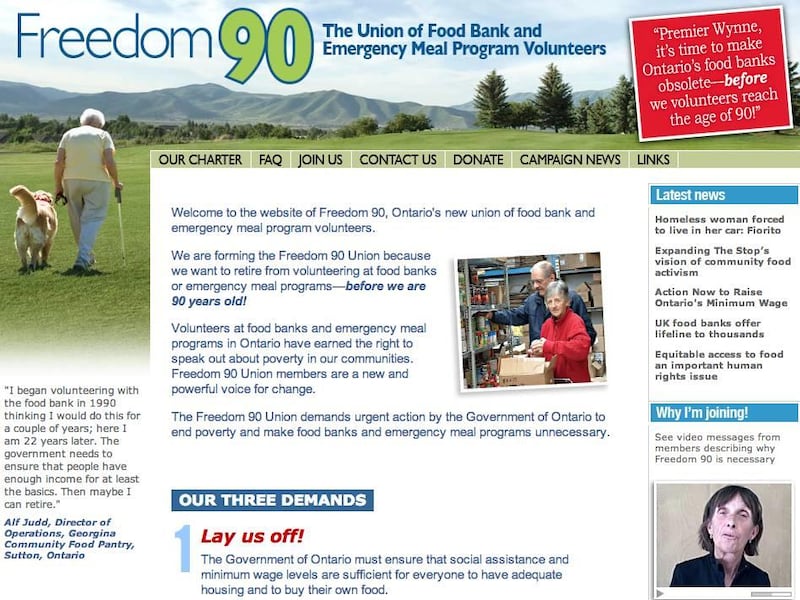In an unusual twist, elderly volunteers in Ontario, Canada, have become activists, writing and singing for a surprising cause: closing food banks.
Creating a coalition called Freedom 90, the volunteers "want to make food banks obsolete — unnecessary," ideally by the time they reach the age of 90, reads a statement on their website. "We are advocating for fair wages and adequate amounts of assistance that allow people to purchase their own food and preserve their dignity."
The unusual participants and nature of the campaign, which includes a song to the tune of "50 Ways to Leave Your Lover," are attracting attention.
"It's an unexpected campaign — older people, prosperous pillars of civil society, not obvious radicals — that has prompted the kind of bemused, if slightly patronising, press write-up that asks: 'What if the little old ladies who run the neighborhood church food pantry rebelled?' But they are deadly serious," writes Patrick Butler at The Guardian.
Concerned about the rising number of people utilizing food banks and emergency meal programs, the food bank volunteers, the majority of whom are elderly women, are stressed over their assumed responsibility for making sure their neighbors have enough to eat.
"What used to be termed a food emergency has become normal — for more than 30 years now," says Freedom 90's website. "Poverty is being 're-branded' as 'hunger' to mask its cause: inadequate incomes, which are due to low wages, precarious work, and social assistance levels too low to provide adequate housing and food."
Freedom 90 also believes that the current system is undignified, inefficient and unsustainable.
"Food banks and emergency meal programs do not, and never will, meet the basic needs of people in our communities with low incomes," Freedom 90 says.
Food insecurity is on the rise in the United States as well. A recent study by the Pew Research Center found that nearly a quarter of Americans struggled to afford food during the past year. Unemployment, not poverty, is the biggest predictor of whether a household will become food insecure, according to Feeding America.
EMAIL: kbennion@deseretnews.com, Twitter: @katebennion


